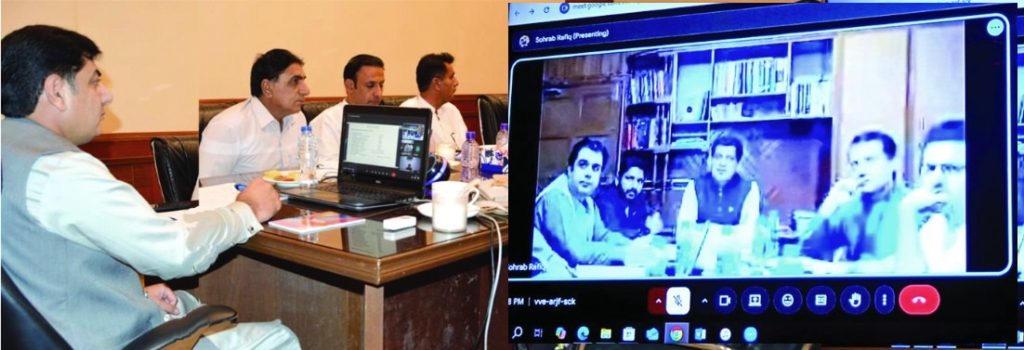TURBAT (6 AM Report): A high-level meeting regarding the under-construction Shaheed Ghulam Farooq Memorial Hospital in Tehsil Buleida was held under the chairmanship of Provincial Minister for Planning and Development, Mir Zahoor Ahmed Buledi. The meeting was conducted via video link simultaneously from the Commissioner Makran’s office in Turbat and the P&D Minister’s Office in Quetta.
Participants from Quetta included Provincial Secretary Health Mujeeb-ur-Rehman, Special Secretary Health Shehak Baloch, Secretary Finance Imran Zarkoon, Additional Secretary Health Abdul Razzaq Sasoli, and CEO of the hospital Dr. Raheem Buledi. On-ground attendees included Commissioner Makran Qadir Bakhsh Pirkani, Deputy Commissioner Kech Basheer Ahmad Badaich, Principal Makran Medical College Dr. Afzal Khaliq, DHO Kech Dr. Abdul Rauf Baloch, MS Teaching Hospital Turbat Dr. Waheed Buledi, Principal Nursing College Turbat Meher-un-Nisa, and Project Director Bahram Gichki.
During the session, officials provided a comprehensive briefing on the construction status and technical aspects of the hospital. Minister Zahoor Buledi stressed that the project is of critical importance for public welfare and the provision of quality healthcare services in the region.
“There will be no compromise on construction standards,” he stated, emphasizing that the hospital must be completed both on time and to the highest quality. He added that upon completion, the facility would bring modern medical services to the doorstep of residents in Tehsil Buleida, eliminating the need to travel to Turbat for treatment.
The meeting also included discussions on temporarily enhancing services at the existing Rural Health Center Meenaz Buleida, until the new hospital becomes operational.
Project Director Bahram Gichki presented a detailed progress report, informing that the 50-bed hospital is being constructed at a cost of Rs. 1.5 billion in Saurap, Tehsil Buleida. The project is expected to be completed by mid-next year, and once functional, will significantly improve access to healthcare in the remote region.


